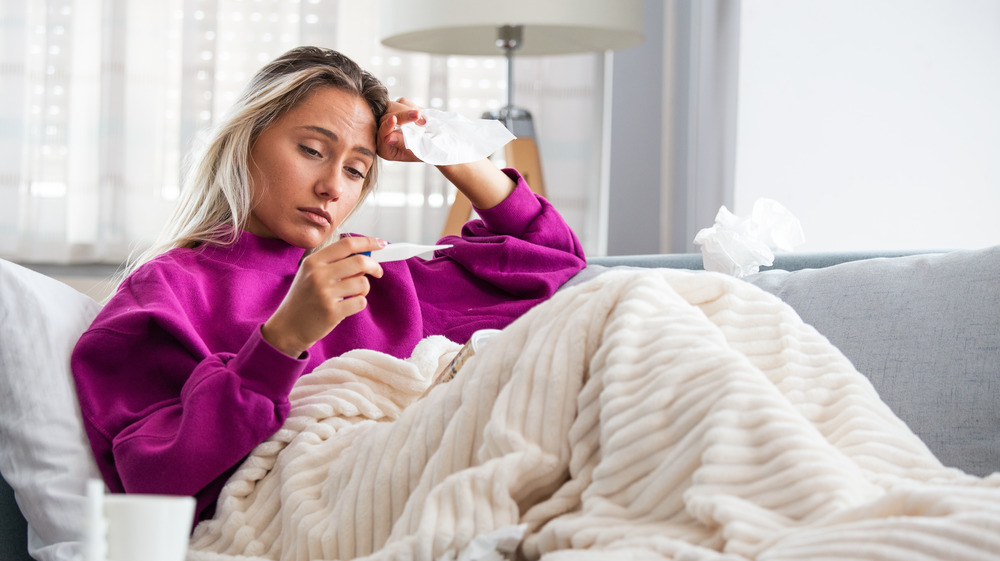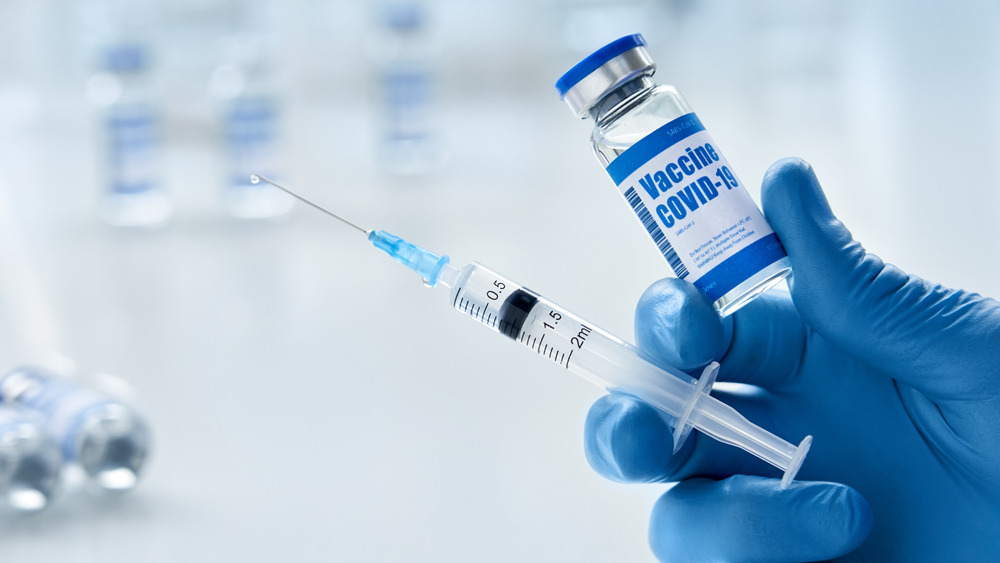Is The COVID-19 Vaccine Safe To Get When You're Sick?
The United States is finally experiencing a positive upswing in the worldwide pandemic following the rollout of mass COVID-19 vaccines earlier this year, claims The New York Times. The publication goes on to say that America has now experienced over 300,000 pandemic-related deaths, but a lot of citizens are hopeful the vaccine will be what eventually ends this agonizing time in our history. If you are scheduled to receive a COVID-19 vaccine and have fallen ill, then we understand your concern. But before you cancel your appointment, here is what you should know about getting the vaccine when you are sick.
Robert Cole, M.D., an intensive care medicine specialist in Camden, New Jersey, and author of How to Build a Smile tells Bustle, "As per the CDC, there is no good evidence that acute illness makes a vaccine less effective or increases adverse effects." But it all depends on what you have. "As a precaution, the current recommendation is to delay vaccination if someone has any acute moderate or severe illness." What does that mean? Well, Dr. Cole says, "If you have a mild cough, runny nose, or diarrhea, but are COVID negative, you can get the vaccine. Additionally, if you are taking antibiotics, you can also still get vaccinated safely."
It may be safest for everyone if you reschedule
That being said, if you can wait to get to get the vaccine, then you should still consider rescheduling — especially if you are unsure if the symptoms you are experiencing are from the coronavirus. Deborah Lehman, M.D., a pediatrics and infectious diseases specialist at the University of California, Los Angeles, tells Verywell Health, "If you have any symptoms at all, you should not be getting the vaccine or really going out in public."
So while being ill hasn't proven to make the vaccine any less effective, you still need to consider the health and safety of others in the process of getting the vaccine. You should also think about your scheduled vaccination date if you have previously tested positive for the coronavirus. Anthony Fauci, M.D., director of the National Institute of Allergy and Infectious Diseases, tells Bustle that if you've already been infected with COVID-19, then you should wait up to three months before you receive the vaccine. This is to prevent interference between naturally occurring antibodies and the ones the vaccine presents.


